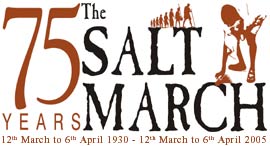Matthew Yglesias gives a superlative reccommendation to a new foreign policy blog, DemocracyAresenal.org:
I, like many people, am a bit tired of complaining about Democrats' national security problems and ready to start doing something about it. . . .There's been a really productive interplay between netroots activist types, more journalistic types (i.e., me), and wonky folks on the economic policy front out here in the blogosphere that has, I think, played a modest but crucial role in the social security debate. Building that kind of engagement on the national security front would be an excellent first step.The "productive interplay between netroots activist types" clause is what piques my interest. Comments-less though he is, it seems like Josh Marshall at TalkingPointsMemo has created a sticky community of readers who can leverage the information they get from his blog into the kind of participation and political pressure that actually gets people in Congress to change their position. I'd get on board if we can bring that kind of participatory dynamic to the national security and foreign policy arena, issues I find both juicier and more truly pressing.
The mission is getting Democrats to be the party of National Security. Over at DemocracyArsenal, Heather Hurlburt has a ten-step program. It's a bit convoluted for marching orders, so I'm summarizing it and reframing it a bit more positively:
1) Educate progressive activists, don't blame them.J. and Praktike have already weighed in asking for more showing, not telling, which I'm taking to mean fastforward through steps 1-8 and really tackle 9 and 10. I most interested in extending 9 and 10 past the election cycle (which we're not in yet, and which isn't actually what this is all about) into the work of actually overseeing our government. Informed popular participation, applying real pressure to the legislative and executive branches, throughout the year, should also translate into better electoral results.
2) Understand the real positions of both progressives and the general public, don't caricature them.
3) Force party leaders to educated themselves on foreign policy.
4) Create insititutions focused on so educating said party leaders.
5) Force foreign policy experts to spend time on the campaign trail, not necessarily during the campaign season. (Matthew Yglesias, that means a road trip for you!)
6) Educate yourself about the military with determination. (Might I recommend Intel-Dump and Armchair Generalist for that purpose?)
7) Create a coherent, consistent Democratic foreign policy narrative.
8) Frame that narrative appealingly.
9) Integrate that narrative with an overall policy narrative and produce candidates accordingly.
10) All of us, get into this.


